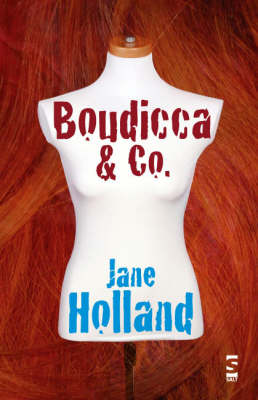Salt Modern Poets
2 total works
Jane Holland's third collection, Camper Van Blues, is a book of journeys, both real and imaginary. The title sequence is a British road movie told through poems, one woman and her dog alone in a camper van, each jump-cut taking the reader further into the interior of an addictive, self-destructive personality. In a sequence of brief and highly visual poems, Holland explores a midnight landscape of motorways, truck stops and lay-bys, touching by turns on the issues of loneliness, drug abuse and living with depression. Taut and spare, a note of gritty humour pervades this tale of life on the road for the single woman.
The central poem in this new collection is a bold and political reworking of the Anglo-Saxon poem, The Wanderer, which is both a personal elegy and a lament for fallen soldiers by an unnamed `solitary drifter'. Other poems here link into that sense of loss and bereavement, and the aftermath of relationship breakdown which can lead to social isolation.
Later in the collection, Holland returns to a lighter, more lyrical note, handling poems about love, relationships and sexual attraction with confidence. There's a return to personal mythologies too, following on from her two earlier collections, with a number of pieces based around English folklore and Celtic symbolism. Holland also explores the growing threat of climate change in several powerful ecopoems, two of which deal with the dramatic events surrounding the floods at Boscastle in 2004, where she was once a resident.
Jane Holland’s second collection, Boudicca & Co., is a provocative and vibrant exploration of women and their roles in society. The perennial themes of motherhood, love and sex jostle for space here with elegies, poetry written for performance, and Celtic-inspired mythological pieces. Richly allusive, these poems create networks between each other, tell stories, make music and ask unexpected questions of the reader.
A collection with a powerful sense of place, Boudicca & Co. is located mainly within the British Isles, though not always in the present day. Often retrospective in mood, these poems deal with the poet’s own difficult past and with historical Britain, reinventing Celtic and Medieval stories and myths in particular. Yet there is also a Britain here that never existed, a landscape of the imagination, where a restless questioning spirituality tries to make sense of the gaps between expectation and reality.
Sensual and politically engaged, Boudicca & Co. drives narrative poetry in new feminist directions, creating a host of female characters with strong individual voices and complex agendas. The title poem is a long ambitious sequence in the voice of Boudicca, disenfranchised Queen of the Iceni who leads the Ancient Britons in rebellion against the Roman settlers. It follows Boudicca’s transition from wife and mother to warrior queen, prepared to kill in the pursuit of freedom, blindly ruthless in her desire for revenge. The sequence explores the themes of national identity, personal betrayal and civil war with dark anarchic humour and an uncompromising starkness not for the faint-hearted.

